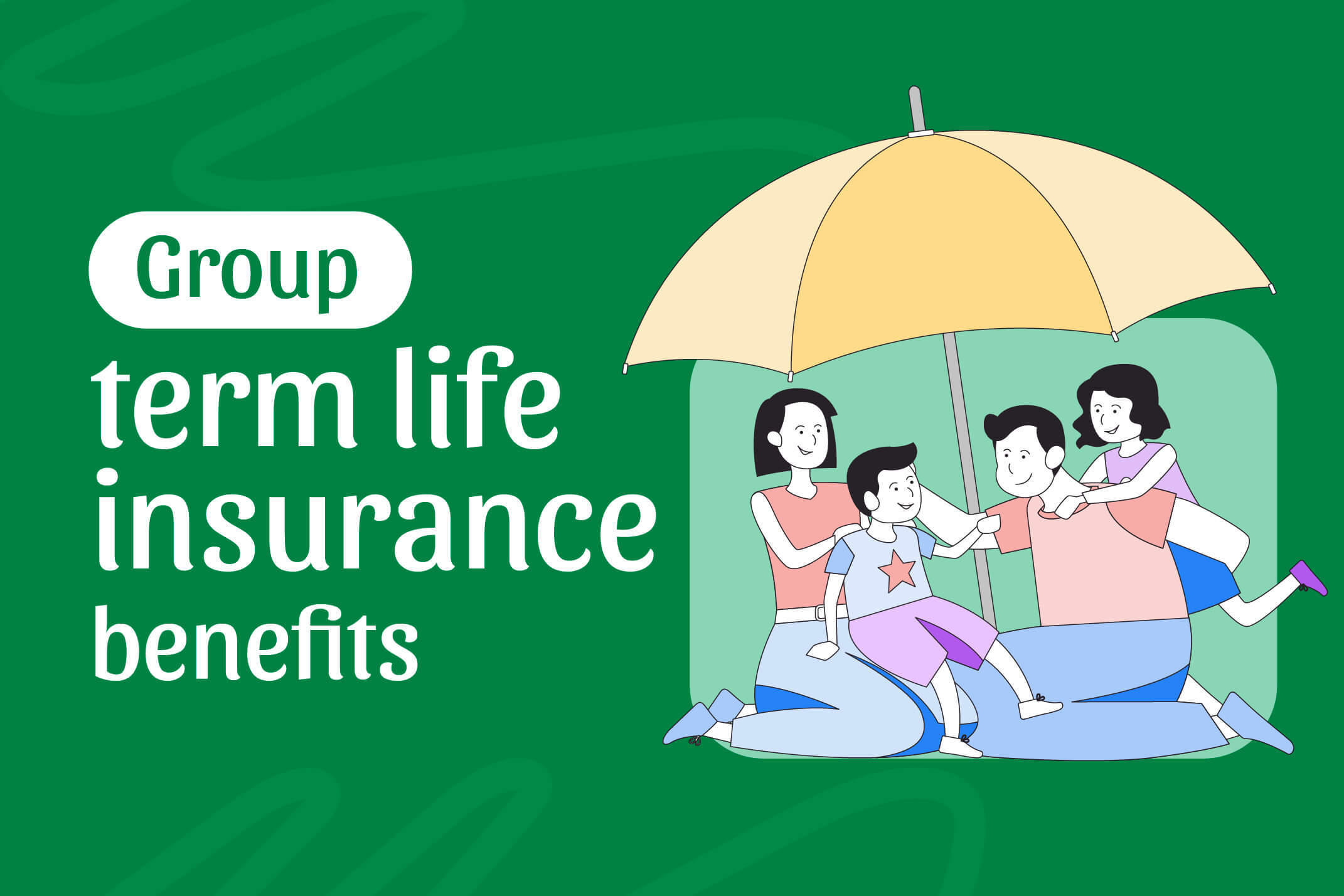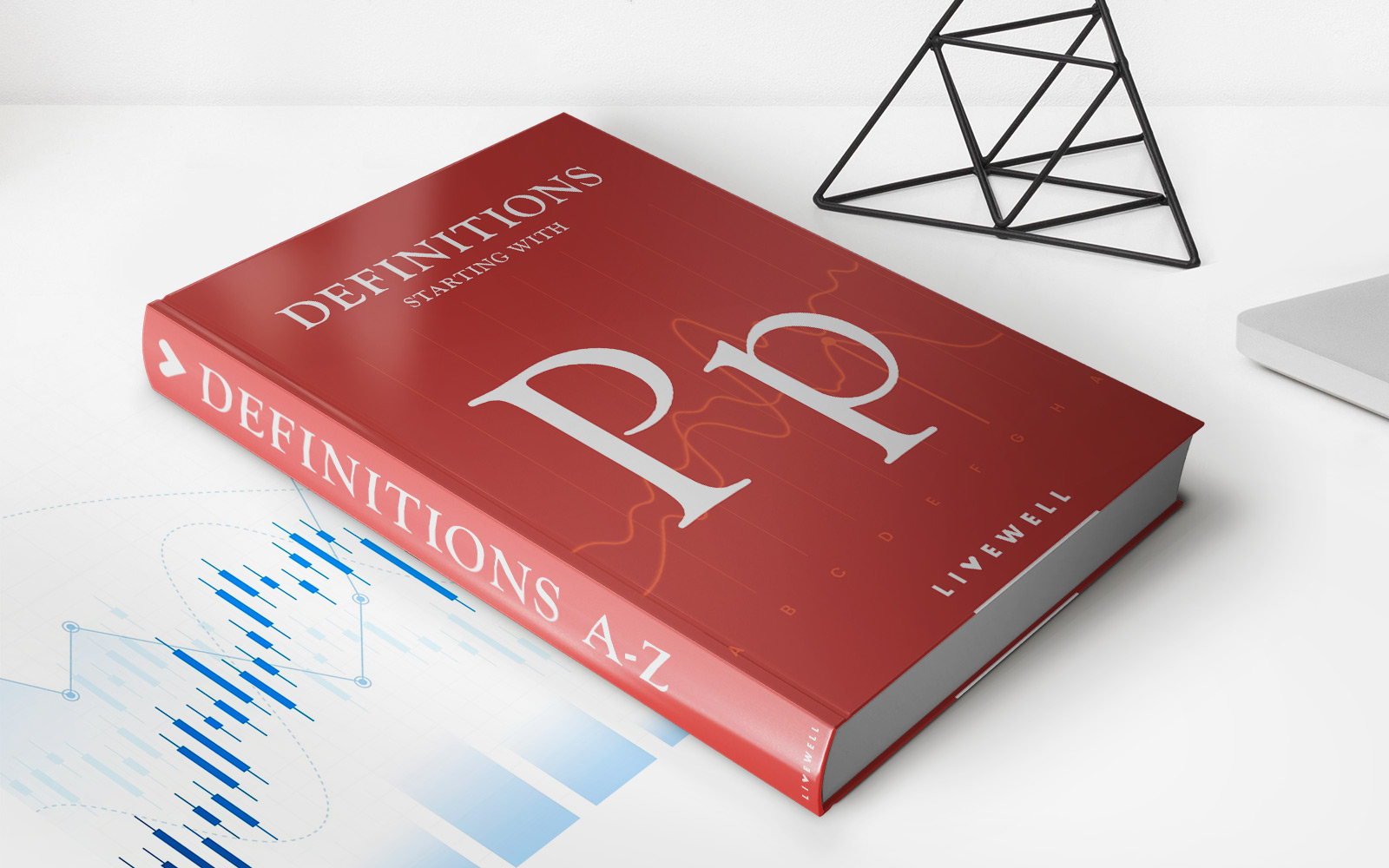

Finance
What Is Optional Term Life Insurance?
Published: October 16, 2023
Learn all about optional term life insurance, a financial product that provides coverage for a specific period of time and offers flexibility for individuals.
(Many of the links in this article redirect to a specific reviewed product. Your purchase of these products through affiliate links helps to generate commission for LiveWell, at no extra cost. Learn more)
Table of Contents
- Introduction
- What Is Term Life Insurance?
- The Basics of Optional Term Life Insurance
- How Does Optional Term Life Insurance Work?
- Benefits of Optional Term Life Insurance
- Factors to Consider When Choosing Optional Term Life Insurance
- Understanding the Cost of Optional Term Life Insurance
- Is Optional Term Life Insurance Right for You?
- Conclusion
Introduction
Welcome to the world of insurance, where protecting what matters most to you is the top priority. When it comes to financial security, few things offer peace of mind like a well-structured insurance policy. One type of insurance that provides a valuable safety net for your loved ones is term life insurance.
Term life insurance is a type of coverage that provides a death benefit to your beneficiaries for a specific period of time, known as the term. It offers financial protection in the event of your untimely passing, ensuring that your loved ones are financially supported when they need it the most.
While term life insurance is a popular choice among individuals looking to safeguard their families, there are various options available within this category. One such option is optional term life insurance, which provides additional flexibility and coverage options.
In this article, we will explore what optional term life insurance entails, how it works, and whether it may be the right choice for you. We will also delve into the benefits of this type of coverage and factors to consider when selecting a policy.
So, if you are curious about the specifics of optional term life insurance or are considering it as a viable insurance option, read on to gain a deeper understanding of its features and benefits.
What Is Term Life Insurance?
Before delving into optional term life insurance, it is important to have a solid understanding of what term life insurance is in general. Term life insurance is a type of insurance coverage that provides a death benefit to your beneficiaries for a specified period of time, typically ranging from 10 to 30 years. Unlike permanent life insurance, such as whole life or universal life insurance, term life insurance does not accumulate cash value over time.
Term life insurance is designed to protect your loved ones financially in the event of your death during the term of the policy. It provides a lump sum payment, known as the death benefit, to your beneficiaries, which they can use for various purposes, such as paying off debts, covering funeral expenses, or meeting ongoing financial needs.
One of the key advantages of term life insurance is its affordability, especially when compared to permanent life insurance options. Since term life insurance provides coverage for a specific period of time, and does not come with the added investment components of permanent life insurance, the premiums for term life insurance policies are generally lower.
Term life insurance is also known for its simplicity and ease of understanding. With straightforward terms and a clear expiration date, term life insurance enables you to choose a policy that aligns with your specific needs and financial circumstances.
Overall, term life insurance is a popular choice for individuals who want affordable and straightforward coverage to protect their loved ones in the event of their untimely passing. It provides a sense of security and peace of mind, knowing that financial support will be available to their beneficiaries when it is needed most.
The Basics of Optional Term Life Insurance
Optional term life insurance, also referred to as supplemental term life insurance, is an additional layer of coverage that you can add to your base term life insurance policy. It allows you to customize your coverage to better suit your specific needs and provide additional financial protection for your loved ones.
While a standard term life insurance policy offers a fixed death benefit for a specific period of time, optional term life insurance provides the opportunity to increase the death benefit amount or extend the coverage period beyond the base policy. This additional coverage can be especially beneficial if you have significant financial obligations or if your circumstances change over time.
Adding optional coverage to your term life insurance policy allows you to tailor your coverage to your evolving needs. For example, if your financial responsibilities increase, such as taking on a larger mortgage or starting a family, you can increase the death benefit amount to ensure that your loved ones are adequately protected if something were to happen to you.
Similarly, if you want to prolong the coverage period beyond the initial term, optional term life insurance allows you to extend the duration of the policy. This can be valuable if you anticipate a need for coverage after the original term expires, such as to cover final expenses or leave a financial legacy for your loved ones.
It’s important to note that the availability and specific options for optional term life insurance may vary depending on the insurance provider. Some companies offer a range of optional riders or benefits that can be added to the base policy, such as a disability waiver of premium rider, which waives the premium payments if you become disabled during the policy term.
When considering optional term life insurance, it’s crucial to carefully review the terms and conditions of the policy, including any additional costs associated with the optional coverage. Assessing your financial situation, goals, and potential future needs can help you determine if the added protection and flexibility offered by optional term life insurance align with your objectives.
In the next section, we will delve into how optional term life insurance works and what benefits it can provide.
How Does Optional Term Life Insurance Work?
Optional term life insurance works as an add-on to a base term life insurance policy, allowing you to enhance your coverage to better meet your needs. When you purchase optional term life insurance, you have the flexibility to increase the death benefit or extend the coverage period beyond the base policy.
To add optional coverage to your term life insurance policy, you will need to contact your insurance provider and discuss your specific requirements. They will guide you through the process and provide information on the available options and any additional costs involved.
If you choose to increase the death benefit through optional term life insurance, it means that your beneficiaries will receive a larger payout in the event of your passing. This can be useful if your financial obligations have increased, such as taking on a higher mortgage, providing for your children’s education, or supporting aging parents.
Extending the coverage period with optional term life insurance allows you to have coverage beyond the initial term. This can be beneficial if you wish to provide ongoing financial support for your loved ones, even if your original term policy expires. It can also be useful if you want to ensure that your beneficiaries are protected for a longer period of time, especially if you anticipate a delay in their financial independence.
When you add optional coverage to your term life insurance policy, it’s important to carefully review the terms and conditions, including any restrictions or limitations that may apply. Familiarize yourself with any exclusions and the process for filing a claim to ensure that you fully understand how the optional coverage works within your policy.
Keep in mind that adding optional coverage to your term life insurance policy will typically come with an additional cost. The specific cost will depend on factors such as the amount of additional coverage, the duration of the extended coverage, your age, and your overall health. It’s important to assess your budget and consider the affordability of the optional coverage before making a decision.
Optional term life insurance can be a valuable tool for customizing your coverage to suit your specific needs. It provides flexibility and additional protection that can help provide peace of mind for you and your loved ones. In the next section, we will explore the benefits of optional term life insurance in more detail.
Benefits of Optional Term Life Insurance
Optional term life insurance offers several key benefits that can enhance your overall coverage and provide added peace of mind. Let’s take a closer look at some of the advantages of opting for optional term life insurance:
- Increased Death Benefit: One of the primary benefits of optional term life insurance is the ability to increase the death benefit. This means that your beneficiaries will receive a higher payout if something were to happen to you. This can be particularly beneficial if you have significant financial obligations or want to provide your loved ones with extra support.
- Extended Coverage Period: Optional term life insurance also allows you to extend the coverage period beyond the initial term of your policy. This can be advantageous if you anticipate a need for insurance coverage beyond the original term, such as to fulfill long-term financial obligations or leave a legacy for your loved ones.
- Customizable Coverage: Adding optional term life insurance gives you the flexibility to customize your coverage based on your specific needs. You can tailor the coverage amount and duration to align with your evolving financial circumstances and goals. This ensures that your insurance policy remains relevant and provides adequate protection for your loved ones.
- Additional Riders and Benefits: Many insurance providers offer a range of optional riders and benefits that can be added to your term life insurance policy. These riders can provide additional protection and features, such as waiver of premium in case of disability, accelerated death benefit for terminal illnesses, or coverage for critical illnesses. Carefully reviewing these options can help you enhance your policy to meet your unique requirements.
- Affordability: Despite the added benefits and flexibility, optional term life insurance remains relatively affordable compared to other types of insurance policies, such as permanent life insurance. This makes it an accessible option for individuals who want to secure essential coverage without breaking the bank.
By taking advantage of the benefits offered by optional term life insurance, you can strengthen the financial protection provided to your loved ones in the event of your passing. However, it’s important to evaluate your specific needs, financial situation, and future goals before deciding to add optional coverage to your policy.
Next, we’ll explore important factors to consider when choosing optional term life insurance to ensure that you make a well-informed decision.
Factors to Consider When Choosing Optional Term Life Insurance
When considering optional term life insurance, there are several key factors to take into account to ensure that you make the right decision for your specific needs. Here are some important factors to consider:
- Financial Goals and Obligations: Assess your financial situation and consider your long-term goals and obligations. Determine how much coverage you need to protect your loved ones and whether adding optional coverage aligns with your financial goals.
- Health and Age: Your health and age will play a significant role in determining the cost of optional term life insurance. Assess your health and understand how it may impact your premiums or eligibility for certain optional riders or benefits.
- Budget and Affordability: Take a close look at your budget and determine how much you can comfortably afford to pay for your insurance premiums, including any additional costs associated with the optional coverage.
- Duration of Coverage Needed: Consider the length of coverage you require. Determine whether the base term on your policy is sufficient or if you should extend it with optional coverage. Factor in any potential changes in your circumstances, such as upcoming milestones or financial responsibilities.
- Available Optional Riders: Research the optional riders and benefits offered by insurance providers. Determine which ones align with your needs and are worth the additional cost. Common optional riders include disability waiver of premium, accelerated death benefit, or accidental death benefit.
- Policy Conversion: Some term life insurance policies offer the option to convert to a permanent life insurance policy in the future. Consider whether this conversion option is available and whether it aligns with your long-term financial plans.
- Insurance Provider Reputation: Research and assess the reputation and financial stability of insurance providers offering optional term life insurance. Look for customer reviews, ratings, and their track record of fulfilling claims. Choose a reputable and reliable provider for your coverage.
It is important to carefully evaluate these factors and consult with a trusted financial advisor or insurance professional who can help guide you towards the most suitable optional term life insurance options for your needs.
Once you have considered these factors and selected an optional term life insurance policy that meets your requirements, you can move forward with confidence, knowing that you have made an informed decision to protect your loved ones financially.
Understanding the Cost of Optional Term Life Insurance
When considering optional term life insurance, it is essential to understand the cost implications. The cost of adding optional coverage to your base term life insurance policy will depend on several factors:
- Additional Coverage Amount: If you choose to increase the death benefit with optional term life insurance, the cost will typically be based on the additional coverage amount you select. As a general rule, the higher the coverage amount, the higher the premium.
- Extended Coverage Period: Extending the coverage period beyond the initial term of your policy will also impact the cost of optional term life insurance. The longer the duration of coverage, the higher the premiums.
- Age: Your age at the time of purchasing optional term life insurance will affect the cost. Generally, the younger you are, the lower the premiums will be. Insurance providers assess age as a risk factor, as older individuals tend to have a higher probability of filing a claim.
- Health Condition: Your health is another crucial factor that impacts the cost of optional term life insurance. Insurance companies may require a medical examination or request information about your health history to determine your risk profile. Individuals with pre-existing medical conditions or higher health risks may have higher premiums.
- Optional Riders and Benefits: Adding optional riders or benefits to your term life insurance policy will come with an additional cost. The specific cost will depend on the type of rider selected and the extent of the coverage it provides.
- Insurance Provider: Different insurance providers have varying pricing structures and underwriting guidelines. It is essential to shop around and compare quotes from multiple insurers to ensure you are getting the best value for your optional term life insurance coverage.
It’s important to note that the cost of optional term life insurance will be in addition to the premiums you already pay for the base term life insurance policy. Take the time to analyze your budget and determine how much you can afford to spend on insurance premiums to ensure that the optional coverage fits within your financial means.
Additionally, reviewing and understanding the terms and conditions of the optional coverage is essential. Some policies may have restrictions or limitations on when and how the optional benefits can be utilized. Familiarize yourself with these details to ensure you have a clear understanding of what you are paying for.
Finally, keep in mind that the cost of optional term life insurance can fluctuate over time. Rates may vary upon renewal, and factors such as changes in age, health, or the insurance market can affect premiums. Regularly reviewing your coverage and reassessing your needs is recommended to ensure that your policy remains suitable and affordable.
By understanding the cost factors and carefully evaluating your financial situation, you can make an informed decision about incorporating optional term life insurance into your coverage to provide enhanced financial protection for your loved ones.
Is Optional Term Life Insurance Right for You?
Deciding whether optional term life insurance is the right choice for you depends on your individual circumstances, goals, and financial needs. Here are some factors to consider when determining if optional term life insurance is a good fit for you:
- Financial Responsibilities: Consider your current and future financial obligations. Do you have significant debts, such as a mortgage or student loans? Are you financially responsible for supporting dependents, like children or aging parents? If you have substantial financial responsibilities, adding optional term life insurance with increased coverage can provide added protection for your loved ones.
- Desire for Flexibility: Optional term life insurance offers customizable coverage that can adapt to your changing needs. If you anticipate future changes in your financial circumstances or want the flexibility to extend your coverage beyond the base term, optional term life insurance can provide the security and peace of mind that your loved ones will be protected.
- Budget and Affordability: Evaluate your budget and determine if you can comfortably afford the additional costs associated with optional term life insurance. Consider how it fits into your overall financial plan and ensure that it doesn’t strain your finances.
- Health and Age: Take into account your health and age, as they can impact the cost and availability of optional term life insurance. If you are in good health and relatively young, you may have more options and lower premiums. However, even if you have pre-existing conditions or are older, it’s still worth exploring the available options.
- Long-Term Goals: Consider your long-term financial goals and how optional term life insurance fits into your plans. If leaving a financial legacy or ensuring ongoing support for your loved ones is important to you, extending the coverage period through optional term life insurance can be a valuable strategy.
- Risk Tolerance: Assess your risk tolerance and need for financial protection. If you are risk averse and want to provide the maximum level of financial security for your beneficiaries, adding optional term life insurance can offer additional peace of mind.
- Professional Guidance: Seeking advice from a trusted financial advisor or insurance professional is highly recommended. They can provide insights into your specific situation and help you navigate through the complexities of optional term life insurance to make an informed decision.
Ultimately, the decision to opt for optional term life insurance will depend on your unique needs and circumstances. Consider your financial responsibilities, goals, and ability to handle additional costs. Evaluating these factors will help you determine whether the added protection and flexibility offered by optional term life insurance align with your needs and provide the level of coverage you desire.
By taking the time to carefully assess your situation and seek professional advice, you can make an informed choice about whether optional term life insurance is the right fit for you and provides the peace of mind you seek in protecting your loved ones.
Conclusion
Optional term life insurance is a valuable addition to your financial toolkit when it comes to protecting your loved ones and securing their future. By understanding the basics of term life insurance and the features of optional coverage, you can make an informed decision that aligns with your unique needs and goals.
Term life insurance, in general, offers affordable coverage for a specific period of time, providing a death benefit to your beneficiaries in the event of your passing. Optional term life insurance takes this protection a step further, allowing you to customize your coverage by increasing the death benefit or extending the coverage period beyond the base policy.
There are numerous benefits to opting for optional term life insurance, including enhanced financial protection, flexibility, and the ability to tailor your coverage to your changing needs. With the availability of various optional riders and benefits, you can further enhance your policy to address specific concerns or circumstances.
When considering optional term life insurance, it is important to evaluate factors like your financial goals, age, health, and budget. Assessing your current and future financial responsibilities, understanding the cost implications, and seeking professional guidance can help you make the right decision.
Remember, optional term life insurance may not be suitable for everyone. It is a personal choice that depends on your individual circumstances and priorities. By carefully assessing your needs and considering these factors, you can determine whether optional term life insurance is the right fit for you and your loved ones.
Ultimately, the purpose of insurance is to provide financial security and peace of mind. Optional term life insurance offers an avenue to further enhance your coverage and protect what matters most. So, take the time to explore your options, ask questions, and make an informed decision that aligns with your financial objectives and priorities.














